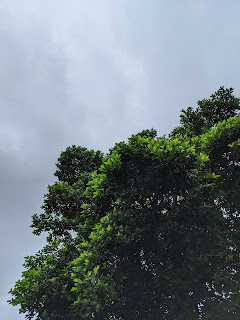Busy Ants!!
Recently I read this quote by Henry David Thoreau:
"It is not enough to be busy; so are the ants. The question is: what are we busy about?"
After rereading this quote, I found it really connected with me.
Living in the busy city can often feel overwhelming, as if I am drowning in a sea of activities without truly enjoying life. As I thought about it, I realised I am not struggling with FOMO (since I have never felt that), but rather with a sense of aimless busyness—always on the go but not really getting anywhere meaningful (although the “meaningful” meaning of life is still a question!!).
When I think of the word "busy," I don't imagine something overly complicated. For example, if someone misses my call, I understand they might be busy, but I still expect them to call back or at least reply. I have read that “truly busy” people usually take the time to respond to texts or messages because they know their replies are important, but they do reply. However, I don't quite understand the concept of "busyness" as a means of demonstrating importance. It seems like there’s more to it than that (or am I reading more into this busy business than I should?)
So, as usual, I went to find the history of the most-used excuse, “busy”.
Initially, "busy" often carried a negative connotation, sometimes suggesting being "prying" or "meddlesome"—a nuance still seen in the word "busybody," which appeared in the 16th century. The term "busy" derives from the Old English "bisig" (also spelled "bysig"), and in its earliest usage, it meant being "careful," "anxious," or simply "occupied."
This “busyness condition” resonate to me as:
A status symbol disease: People often equate being busy with being successful, important, or in demand.
A default mode: With constant digital connectivity, the lines between work and leisure blur, leading to perpetual engagement.
A source of stress: Despite the perceived benefits, chronic busyness can lead to burnout, anxiety, and a feeling of being overwhelmed.
A distraction: It can serve as a way to avoid introspection or confronting deeper existential questions.
My old soul is nowhere, trying to justify the validity of slowness. My viewpoint is this much-
Is the "Always On" culture beneficial for a human being's sanity?
“The Cult of Efficiency” pushing us to optimise every moment and maximise output - are we comparing ourselves to robots?
The isolation created by “technological overload” - is it a required burden or we opted for it?
“Slowing down and being human” is an important act of self-care and freedom (or rather liberation). Even ants rest.
The little pauses in life remind us that our value comes not just from how productive we are, but from our ability to connect with others, feel empathy (a topic-trait- I need to work on, which I shall try to write down in another blog post), be creative, and find peace within ourselves. This shift enables us to reclaim our time, focus, and energy, allowing us to live a more meaningful, genuine, and human life.
"Nature does not hurry, yet everything is accomplished."



Interesting thought
ReplyDeleteThanks ... keep reading the blog
DeleteInteresting perspective.
ReplyDeleteWhat’s beneath that busyness is a deeper question?
And before others it’s an enquiry to self. Whom do you want to connect and with whom you choose to appear busy? And, then is the assessment congruent.
Yes. what's beneath is the deeper question!
Delete